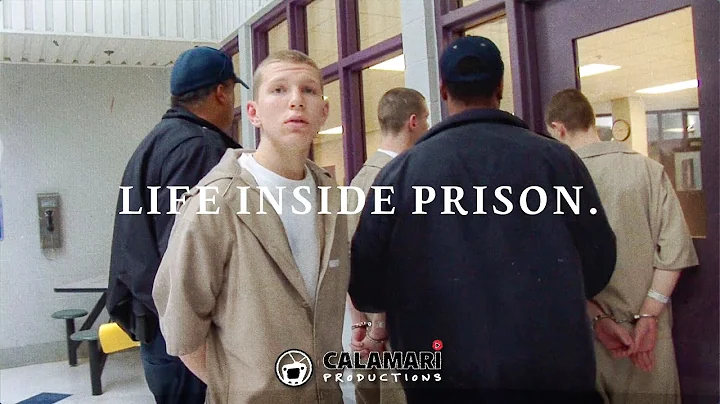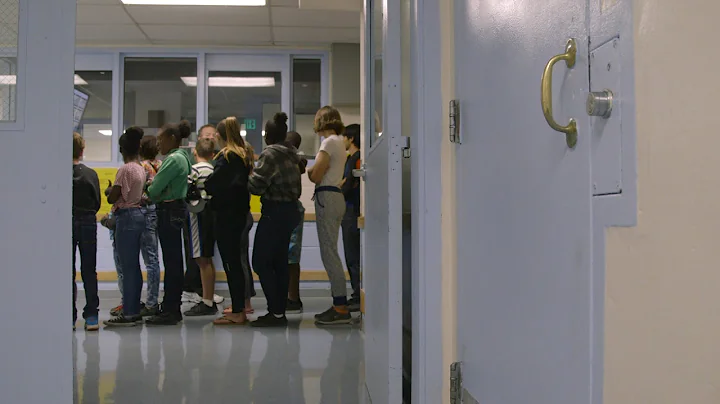Juvenile offenders may believe that they have nothing to change about themselves.
Juvenile offenders often portray themselves as victims.
Those who work with juvenile offenders may find themselves on the defensive and begin to doubt themselves.
Anyone who has actually worked in a juvenile detention center or provided community counseling directly to delinquent youth knows that it is much easier to support these goals than to actually work with boys and girls who refuse counseling or treatment. their existence.
Most typically, juvenile offenders state outright that they do not need to change themselves.

Working with criminals requires them to ultimately be held accountable for their actions. This requires more than acknowledging that they did something that caused them to worry. Their main regret was getting caught, not the crime.
Young repeat offenders lack empathy and only have the most basic concept of harm. They believe they are the injured party. I remember one teenager saying: "I know this guy is missing out on his stuff. But I'm the one who has to make time for it." Even if a young man chooses to admit that he is disappointed and hurt by his parents or others, he may Will continue to do so. Momentary regret over consequences is not the same as experiencing regret.
A mental health practitioner may hear his young client lament how unfairly he has been treated. These boys and girls are angry at a world that fails to meet their unrealistic expectations and confirms their inflated views of themselves. They vent their frustrations to parents, teachers, and peers, and blame others who thwart their plans.
There are many ways for juvenile offenders to minimize their culpability. They claimed they were misunderstood and unfairly blamed. They claim others misled them, they didn't know what they were doing, they were defending themselves, or they encountered something they didn't expect. In general, their approach is to provide the evaluator or therapist with whatever they think will satisfy them.

Juvenile offenders can become masters of diversion. They will choose a topic that they think will interest the evaluator or counselor to avoid topics they find unpleasant. A certain young man kept telling me about his "abusive" father, who he said never listened to him or cared about him. The fact is that while his mother worked full time, his father took on the responsibility of supervising him. He lied, vandalized property in the house when he didn't get his way, refused to do homework, and threatened physical harm against people he believed had betrayed him. He insisted on shifting the focus from his behavior to his father's alleged shortcomings. (His brothers, by contrast, were not difficult to manage and had good relationships with their father. ) My encounters with my father indicate that he was nothing like the tyrant described. Instead, he comes across as a mild-mannered, forgiving man who despaired of the path the teenager had taken when he skipped school, hung out with troubled kids, and ignored attempts to help him consider the potential consequences of his actions.
A juvenile offender despises mental health professionals unless he feels the person can "help," by which he means removing him from an unpleasant situation.
Young offenders employ a range of well-trained tactics designed to keep others in the dark. Ambiguity is one of them. Fog seemed to fill the room as the criminal responded to very specific questions with "I don't know," "Maybe," "In some sense," and "You could say that." Another powerful strategy is to refuse to talk. By shutting down, the teenager avoids self-blame. However, as a control tactic, silence may have broader purposes. If he doesn't speak, the interaction stops.

The juvenile offender adapts his behavior to the situation. A 1-year-old truant has been charged with possessing a "weapon" and damaging public property. He is totally out of control at home.It wasn't hard to get him to talk. He would plop down in a chair and ramble on about his parents, especially his mother, whom he portrayed as harsh, ignorant, intrusive, and overprotective. I tried to get him to discuss what might have motivated his mother to behave the way she did, but was rebuffed. "You don't understand," he told me over and over. Accusing others of "misunderstandings" is another tactic of such young people. It shifts the focus from what the young person actually did to the interviewer's "confusion." By interviewing his mother, I learned about how she and her husband coped while raising two other children. She was so scared that she went to bed with her purse in case her children stole her money. She fought every day to go to school.
Most juvenile offenders see no reason to change anything about themselves. His "problem" is someone else's. While in custody, he had a lot of time to think. A kid once said to me sullenly, "You're right. Can you help me get tired of myself?" (He was echoing a phrase I'd used during an office visit.) As it turned out, he wanted to do whatever he wanted. Something to do without getting caught. He commented that going to school, doing homework and doing whatever parents wanted to do was "like a dog on a leash." Faced with the possibility of losing his freedom, he reluctantly admitted that he needed to make a change, but wasn't sure what.
Altered vulnerability or compliance may occur when a boy or girl faces the immediate consequences of his or her actions or fears that worse consequences are coming. Even so, engaging juvenile offenders in the change process remains a difficult task. Most likely, what he wants to change is to be more careful so he doesn't get caught in the future. Unlike adult offenders who are in and out of court and detention facilities, he did not suffer enough consequences that he felt he needed to change anything.

The mission of change goes far beyond abstaining from crime. It involves helping a boy or girl learn to think differently so that he or she eliminates the thinking errors that have become ingrained.
The man or woman engaged in the "rehabilitation" of juvenile offenders must have a clear understanding of what the task of "rehabilitation" requires of the offender and what is required of him or her. counselor will find themselves tested again and again. Even if he is not physically threatened, his integrity is attacked. His view of humanity and his sense of who he is will be challenged again and again. Even with community support and ample financial resources, the man or woman going through this daunting task may feel like he or she is trying to catch up with a bucket.
If you need help for a juvenile offender, it is recommended that you understand the above content, instead of simply stopping him, but helping him to understand himself realistically.





















